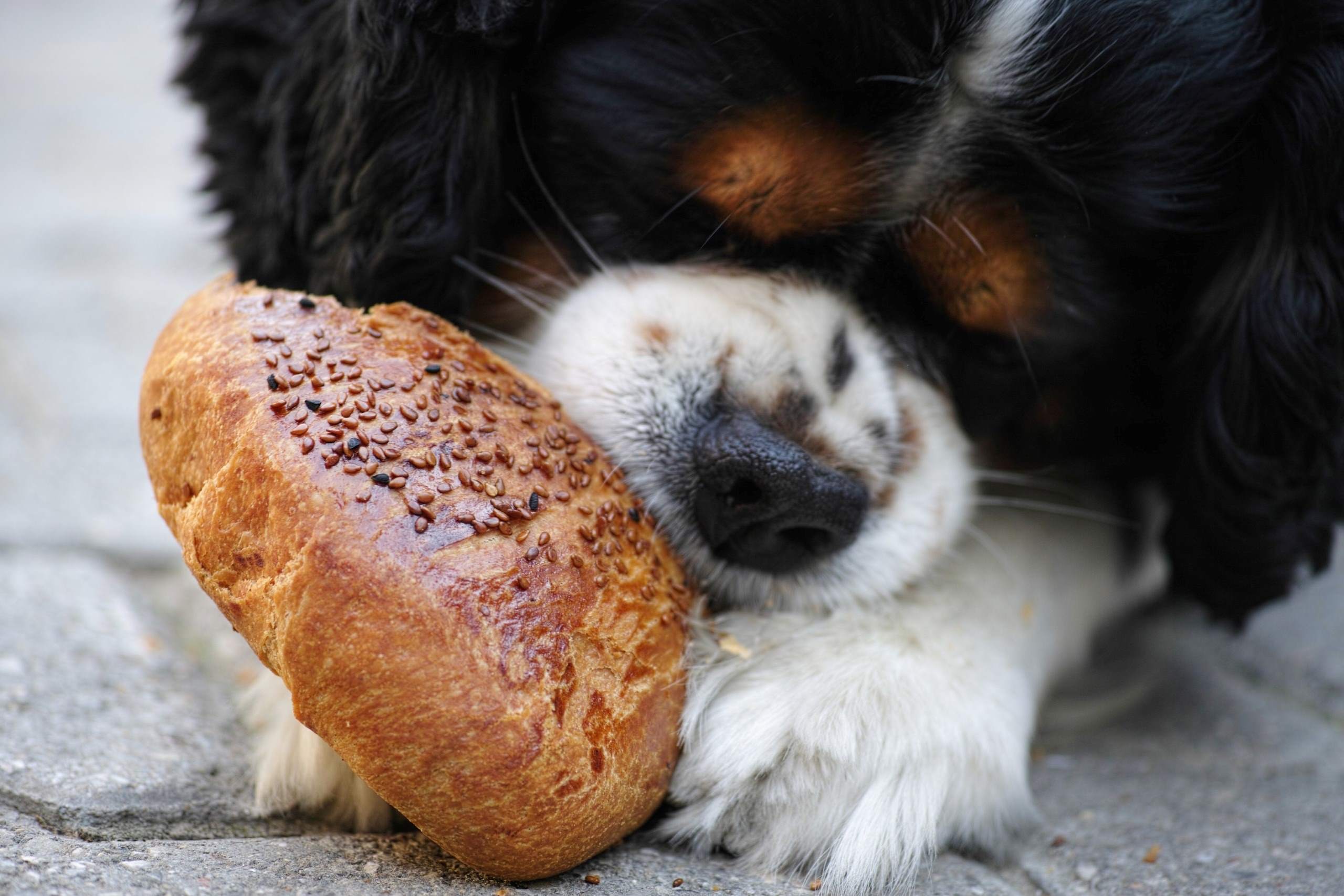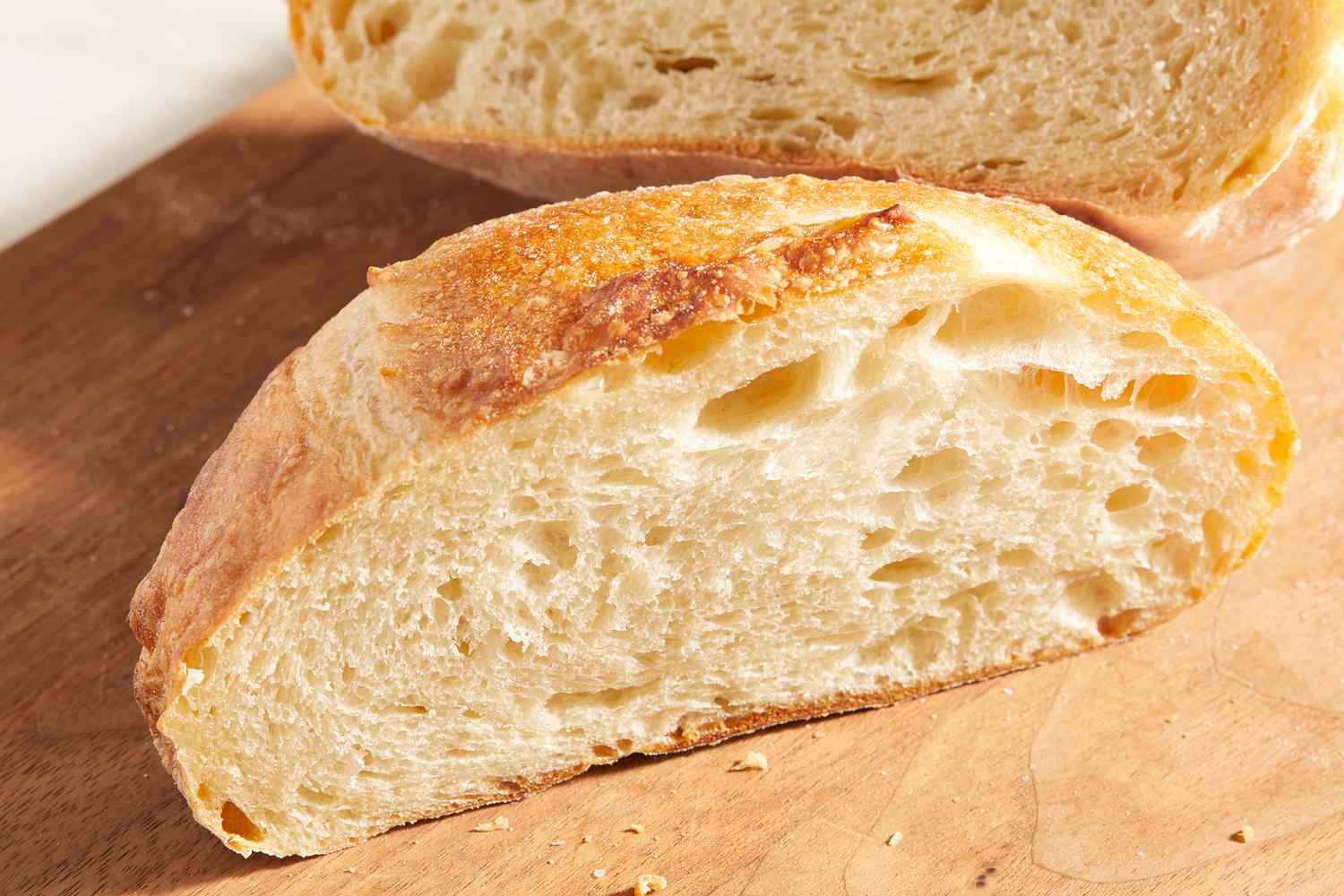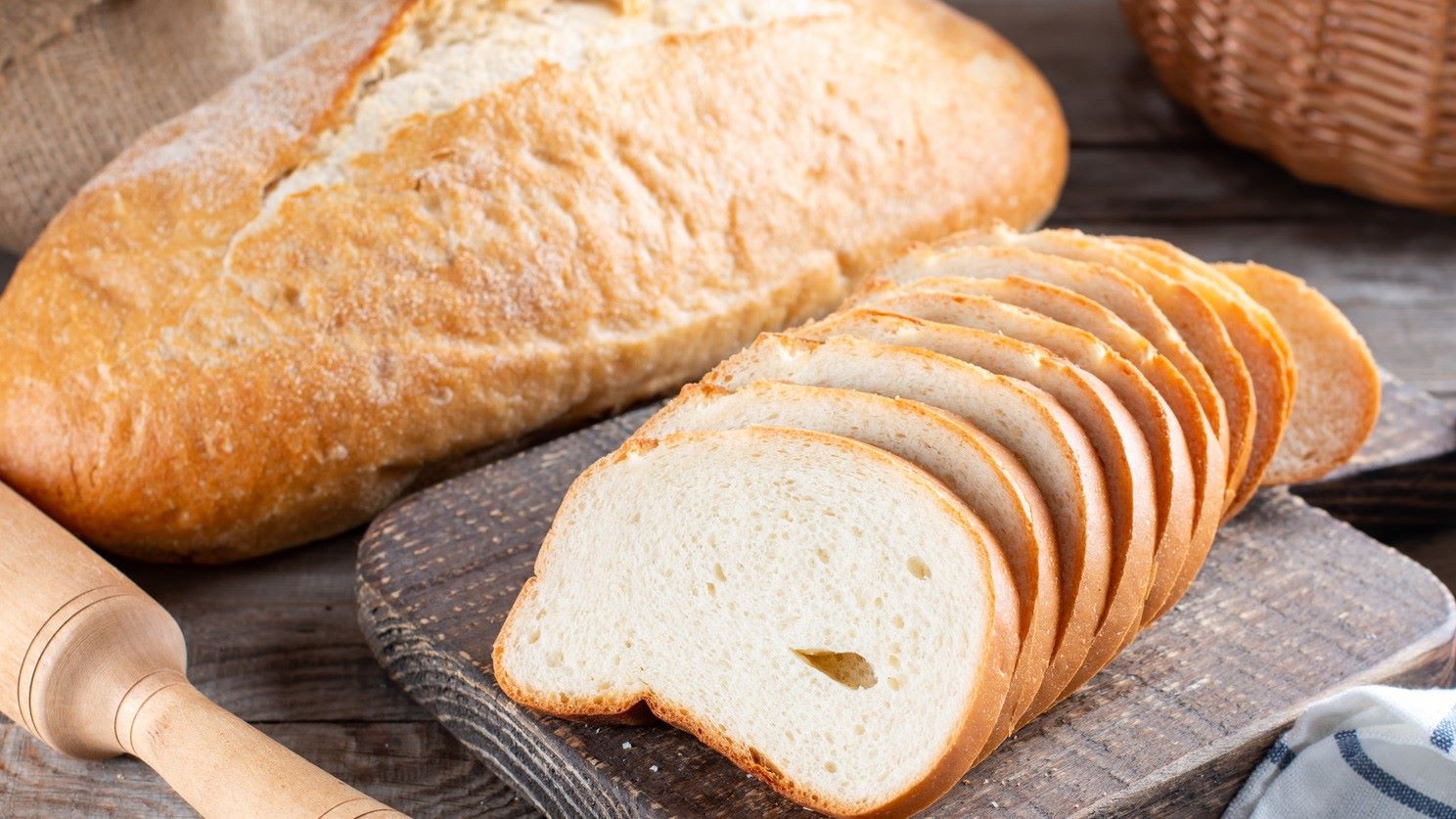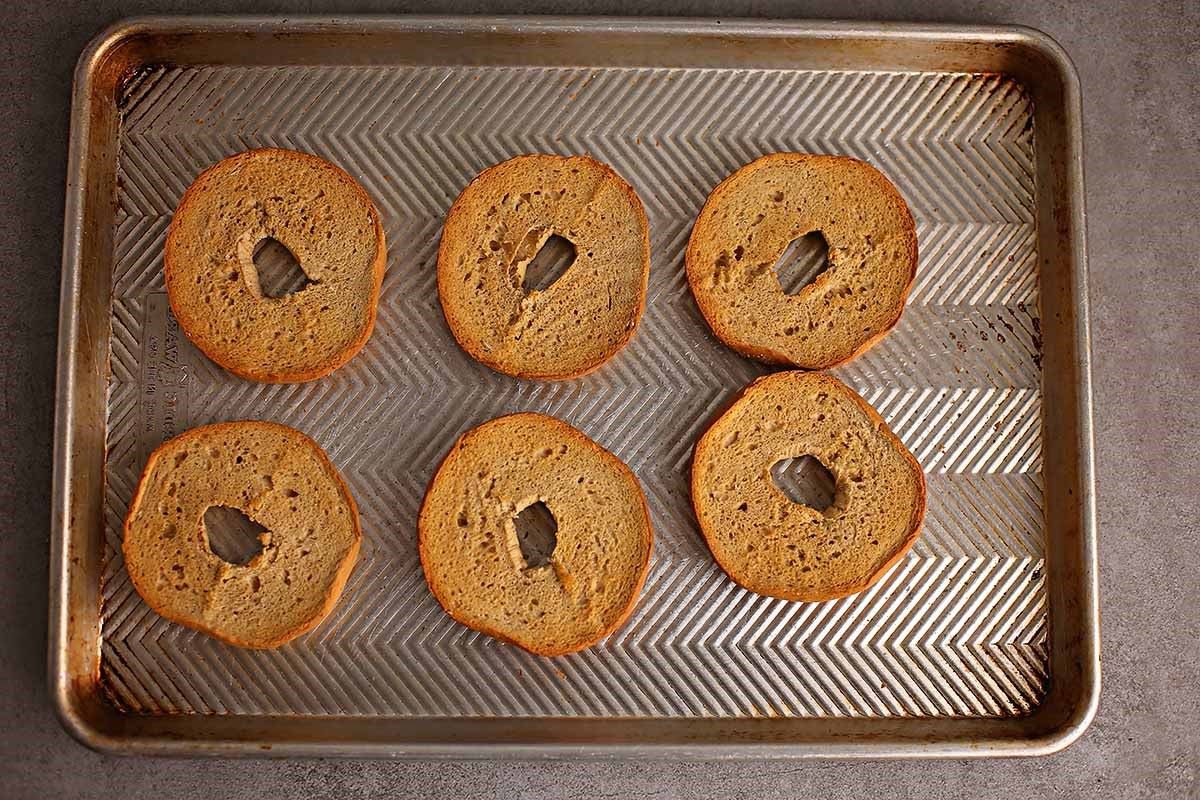Home>Food and Cooking>The Truth About French Toast And Bread For Dogs


Food and Cooking
The Truth About French Toast And Bread For Dogs
Published: January 17, 2024
Discover the best food and cooking tips for your furry friend. Learn the truth about French toast and bread for dogs. Keep your pup happy and healthy with the right diet.
(Many of the links in this article redirect to a specific reviewed product. Your purchase of these products through affiliate links helps to generate commission for Noodls.com, at no extra cost. Learn more)
Table of Contents
Introduction
When it comes to sharing our favorite foods with our furry companions, it's essential to consider their well-being. As dog owners, we often find ourselves wanting to treat our pups to special delights, such as French toast and bread. However, it's crucial to understand the implications of incorporating these human foods into our dogs' diets.
In this comprehensive guide, we'll delve into the truth about French toast and bread for dogs. We'll explore the safety of these foods, potential risks, and best practices for incorporating them into your dog's diet. By the end of this article, you'll have a clear understanding of how to approach these indulgences in a way that prioritizes your dog's health and happiness. Let's embark on this insightful journey to ensure the well-being of our beloved canine companions.
Read more: How To Toast Bread In Air Fryer
Can Dogs Eat French Toast?
French toast, a classic breakfast favorite, is a delectable dish cherished by many. However, when it comes to sharing this indulgence with our canine friends, it's important to consider the ingredients and their potential impact on a dog's health.
French toast typically consists of bread dipped in a mixture of eggs and milk before being fried to golden perfection. While eggs are a valuable source of protein for dogs, and in moderation can be a healthy addition to their diet, the inclusion of milk and bread raises concerns.
Milk and bread are not inherently toxic to dogs, but they can pose potential issues. Many dogs are lactose intolerant, meaning they lack the necessary enzymes to properly digest lactose, the sugar present in milk. This can lead to gastrointestinal discomfort, including gas, bloating, diarrhea, and stomach pain.
Furthermore, the bread used in French toast often contains additives, such as sugar and spices, which may not align with a dog's dietary needs. Excessive sugar intake can contribute to obesity, dental issues, and an array of health problems in dogs.
Additionally, certain spices commonly used in French toast, such as nutmeg, are known to be toxic to dogs and can have detrimental effects on their nervous system if consumed in large quantities.
In summary, while the eggs in French toast can provide nutritional value for dogs, the inclusion of milk, bread, and potentially harmful additives and spices raises concerns about the suitability of French toast for canine consumption. It's crucial for dog owners to prioritize their pet's well-being by making informed decisions about the foods they offer to their furry companions.
Understanding the potential risks associated with feeding French toast to dogs is essential for responsible pet ownership. In the following sections, we will explore the safety of bread for dogs and provide guidance on how to safely incorporate these indulgences into your dog's diet.
Is Bread Safe for Dogs?
Bread is a staple food in many households, often finding its way into various meals and snacks. When it comes to sharing this common human food with our canine companions, it's essential to evaluate its safety and potential impact on a dog's health.
Plain, white, or wheat bread, in moderation, is generally considered safe for dogs to consume. However, it's crucial to be mindful of certain factors that can influence its suitability for canine consumption.
One primary consideration is the ingredients present in the bread. Some types of bread may contain additives, such as sugar, salt, and spices, which can be detrimental to a dog's health. Excessive salt intake can lead to sodium ion poisoning in dogs, resulting in symptoms such as vomiting, diarrhea, tremors, and even seizures. Similarly, the consumption of bread high in sugar can contribute to obesity, dental issues, and other health complications in dogs.
Furthermore, certain types of bread, such as those containing raisins, nuts, or seeds, can pose serious health risks to dogs. Raisins and certain nuts, such as macadamia nuts, are known to be toxic to dogs and can cause severe reactions, including kidney failure and neurological symptoms. Additionally, the ingestion of bread containing seeds can lead to gastrointestinal blockages or obstructions in dogs.
Another important consideration is the potential impact of bread on a dog's diet and overall nutrition. While bread can serve as a source of carbohydrates, it does not offer significant nutritional benefits for dogs. In fact, excessive consumption of bread can lead to nutritional imbalances and contribute to weight gain in dogs.
It's important to note that individual dogs may react differently to the consumption of bread. Some dogs may tolerate bread well in small quantities, while others may experience adverse reactions. Factors such as a dog's size, age, overall health, and any existing dietary sensitivities should be taken into account when considering the inclusion of bread in their diet.
In summary, while plain, white, or wheat bread, in moderation, may be safe for some dogs, it's crucial for dog owners to be mindful of the ingredients, potential risks, and the overall nutritional implications of offering bread to their furry companions. Understanding these considerations is essential for making informed decisions that prioritize the well-being of our beloved canine friends.
How to Safely Feed Bread and French Toast to Your Dog
When it comes to incorporating bread and French toast into your dog's diet, it's essential to prioritize their well-being by following safe and responsible feeding practices. Here are some key guidelines to ensure the safe consumption of these indulgences by your furry companion:
-
Moderation is Key: Whether offering bread or French toast to your dog, moderation is crucial. These human foods should only constitute a small portion of your dog's overall diet. Excessive consumption can lead to nutritional imbalances and potential health issues.
-
Opt for Plain Varieties: When selecting bread for your dog, opt for plain varieties without added sugars, spices, raisins, nuts, or seeds. Plain white or wheat bread, free from potentially harmful additives, poses fewer risks to your dog's health.
-
Consider Your Dog's Individual Sensitivities: Every dog is unique, and their dietary sensitivities may vary. Before introducing bread or French toast to your dog, consider their overall health, any existing dietary sensitivities, and the potential impact of these foods on their well-being.
-
Monitor for Adverse Reactions: Upon offering bread or French toast to your dog, monitor them closely for any adverse reactions. Watch for signs of gastrointestinal distress, such as vomiting, diarrhea, or changes in appetite. If any concerning symptoms arise, it's best to refrain from offering these foods in the future.
-
Ensure Proper Preparation: If you choose to share a small portion of French toast with your dog, ensure that it is prepared without harmful additives such as nutmeg. Additionally, avoid using excessive amounts of butter or oils during the cooking process, as these can contribute to unnecessary fat intake for your dog.
-
Consult with Your Veterinarian: Before making any significant changes to your dog's diet or introducing new foods, including bread and French toast, it's advisable to consult with your veterinarian. They can provide personalized guidance based on your dog's specific nutritional needs and overall health.
By adhering to these guidelines, you can safely incorporate bread and French toast into your dog's diet on occasion, ensuring that their nutritional needs are met while minimizing potential risks to their health.
In summary, responsible pet ownership involves making informed decisions about the foods we offer to our canine companions. By prioritizing moderation, mindful ingredient selection, and individual dietary considerations, you can ensure the safe and enjoyable inclusion of bread and French toast in your dog's diet.
Conclusion
In conclusion, the decision to incorporate bread and French toast into a dog's diet requires careful consideration of various factors, including the ingredients, potential risks, and the individual needs of the canine companion. While plain, white, or wheat bread, in moderation, may be safe for some dogs, it's essential for dog owners to be mindful of the additives, potential allergens, and the overall nutritional implications of offering these human foods to their furry friends.
Understanding the potential risks associated with feeding bread and French toast to dogs is crucial for responsible pet ownership. By prioritizing moderation, mindful ingredient selection, and individual dietary considerations, dog owners can ensure the safe and enjoyable inclusion of these indulgences in their dog's diet.
Furthermore, it's important to emphasize that bread and French toast should not serve as primary components of a dog's diet. Instead, they should be viewed as occasional treats, offered in small portions and as part of a balanced and nutritious feeding regimen. Monitoring for any adverse reactions and consulting with a veterinarian before introducing these foods can help mitigate potential health concerns and ensure the well-being of the canine companion.
Ultimately, the well-being of our beloved canine companions should always be at the forefront of our decision-making when it comes to their diet and nutrition. By approaching the inclusion of bread and French toast with careful consideration and a commitment to responsible feeding practices, dog owners can enhance their pet's overall quality of life while enjoying the occasional indulgence together.
In the journey of responsible pet ownership, knowledge and mindfulness play pivotal roles in ensuring that our dogs receive the care and nourishment they deserve. With these considerations in mind, dog owners can navigate the realm of human foods and make informed choices that align with their pet's health and happiness.















